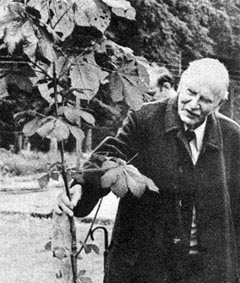[2-minute read]
Alexei Navalny died in February. I’m sure somebody knows why and how, but the great WE doesn’t. It is not impossible that nothing acutely nefarious happened in his Russian prison four months back. Maybe his body had just had enough after the earlier poisoning and years spent on the run or in jail. But there is no doubt that, aged 47, he had sacrificed not only his freedom but his life to oppose injustice and to offer hope to the despairing. His death should be remembered. I learned more about him after he left us, and his words and example still work on me.
This is dramatically capsulized in his “final words” to Russian compatriots in the event of his death; they close the Oscar-winning 2022 documentary film Navalny, which chronicles what the dissident lawyer had come to understand following his nearly miraculous recovery from an obviously sinister poisoning in 2020. He is about to return to near-certain imprisonment or even death in his mother country. His interviewer asks him what, in the event of his demise, he would want to say to his fellow Russians. His answer is powerfully simple.
“NOT GIVE UP.” He speaks quietly to the camera, but something in his eyes had me writing it in capital letters. That is his message.
Of course, the film-maker wants more, and Alexei Navalny provides it. He includes a well-known saying, often unattributed or wrongly so¹, but it feels true coming from him. In so doing, he leaves for his countrymen, and for anyone and all peoples facing apparently overwhelming oppression – and hey, even for a Canadian Bahá’í-guy basketball coach with a comfy life and a scribbling itch – these quietly defiant words:
“I have something very obvious to tell you. You’re not allowed to give up. If they decide to kill me, it means that we are incredibly strong. We need to utilize this power, to not give up, to remember we are a huge power that is being oppressed by these bad dudes.
“We don’t realize how strong we actually are.
“The only thing necessary for the triumph of evil is for good people to do nothing. SO DON’T DO NOTHING.”
Don’t do nothing, noble reader. And try to do it in ALL-CAPS.


